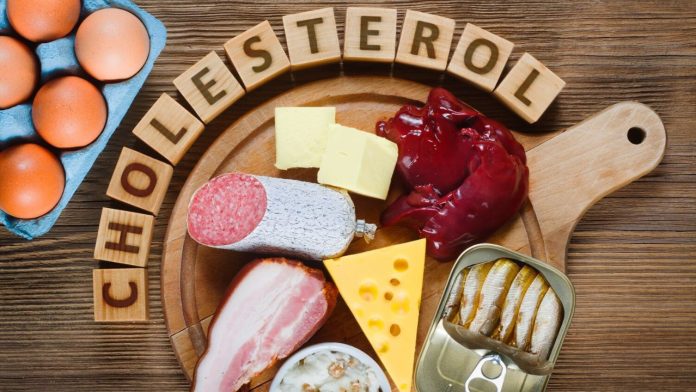There are a lot of myths about cholesterol management that, if accepted, might work against you. Individuals with high blood cholesterol frequently overrestrict their diets, cutting out all fat, even healthy fat. They also neglect to consider the possibility that their body’s hormonal abnormalities are raising their levels of harmful cholesterol. While it is imperative to abstain from fried foods, full-fat dairy, red meat, sugary confections, and processed foods, unsaturated fats can be added to the diet in moderation to help lower bad cholesterol and maintain heart health. Nuts, salmon, ghee, and other foods high in healthful fats are essential.
Potential underlying factors contributing to high cholesterol:
1. Anxiety or stress
Did you know that cholesterol is used to make cortisol? Your cortisol levels are definitely elevated if you’re under a lot of stress, which might boost the amount of cholesterol your blood sends to your adrenal glands. Your body will have to manufacture more cholesterol the more cortisol it needs. Prioritize regulating your stress levels above reducing your intake of healthy fats.
2. Low conversion or generation of T3
For cholesterol to be converted into necessary hormones like progesterone and estrogen, enough T3 is needed. Additionally, a low T3 indicates insufficient thyroid hormone for the synthesis of these other hormones. Raised blood cholesterol levels result from this, which are therefore unutilized.
3. Vegetable oils predominate in your diet
Elevated cholesterol levels may result from this. When PUFA levels are too high, the body’s ability to move fats is hampered, which can lead to blood vessel accumulation.
4. Digestive problems
An agent of healing is cholesterol. Cholesterol rushes to repair any damage or inflammation. Give up on cholesterol as the only problem when the elevated levels are actually caused by underlying inflammation and digestive problems. Investigate the underlying source of this irritation.

 हिंदी
हिंदी






